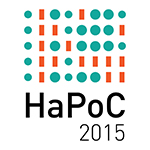This paper aims to study one of the oldest medieval handbooks on calculation with Indo-Arabic numerals in positional notation, the Carmen de algorismo by the Franciscan friar and scholar Alexander de Villa Dei, who was also a professor of Humanities at the University of Paris in the 12th century. This work had a remarkable spread during the Middle Ages in many European countries, alongside the Algorismus prosaicus by Johannes de Sacrobosco. In our study we will portrait the overall picture of the spread of new techniques of calculation with Indo-Arabic numerals in cultured circles and of the consequent literature, since it is different from the contemporary works called abacus books, devoted to merchant and practical calculations. Despite its importance, the work has not yet been thoroughly investigated both for its relative difficulty, because it is composed in verse by a refined author, and for the presence of a contemporary literature of the same content, starting precisely from the one by Sacrobosco.
- Presentation
- Other
- Video

 PDF version
PDF version
